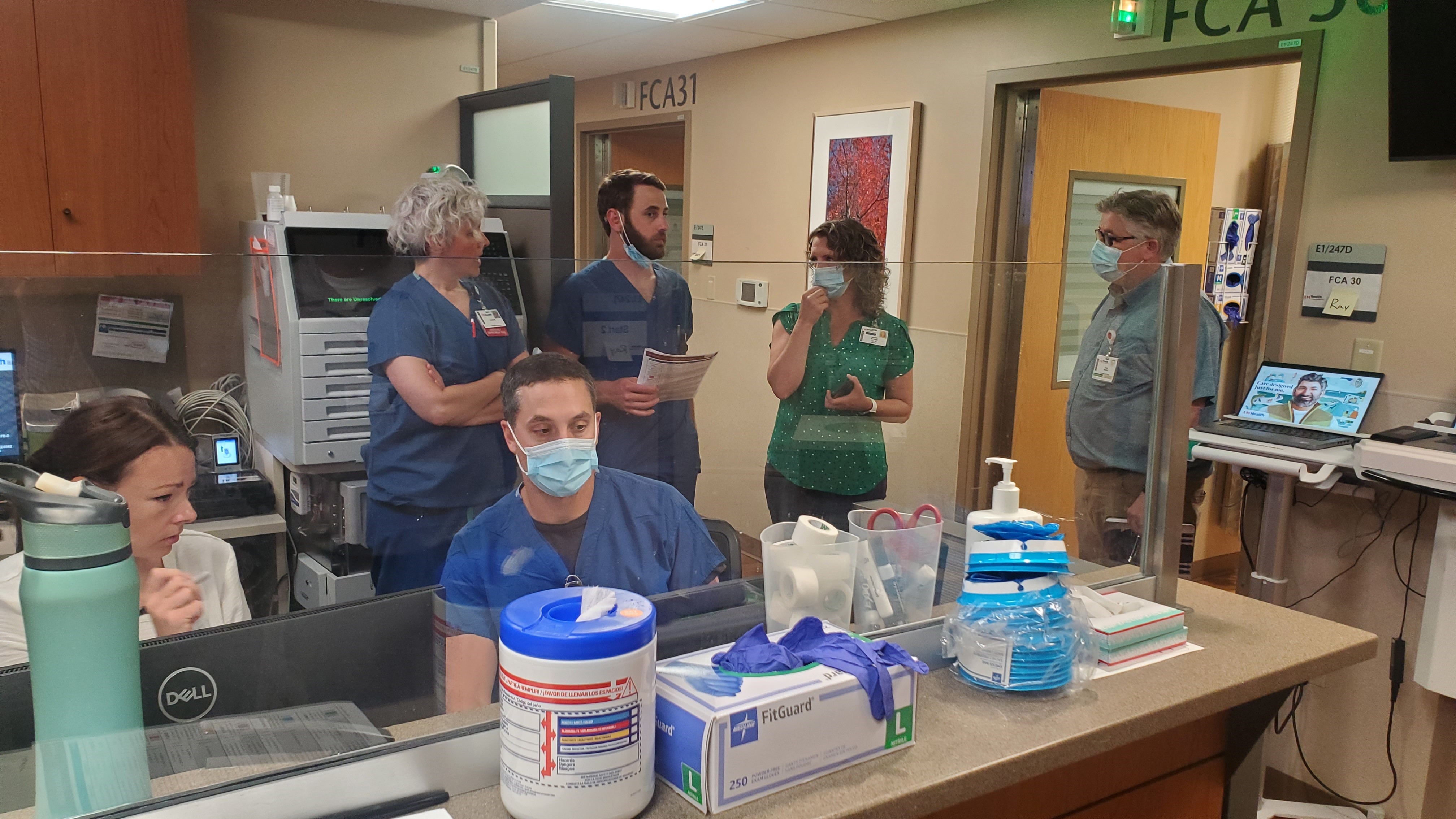With a record volume of patients being seen across all emergency departments (EDs), UW Health is continuously looking for ways to ensure patients receive safe and timely care. At University Hospital, a cross-functional group of ED team members partnered with Organizational Improvement to conduct a three-day rapid improvement event (RIE) focusing on the safe, timely assessment and rapid treatment (CareSTART) area of the ED.
With CareSTART, a nurse, physician, advance practice provider and ED tech rapidly assess patients to initiate care even before they can be placed in an ED treatment room.
The goal of the rapid improvement event was to gain efficiency, decrease time from patient arrival to initiation of care and create a more sustainable process for staff. The team gathered data before the event to have a good understanding of current challenges and allow them to quickly begin generating ideas for change on the first day of the event.
Ray Kline, BSN, RN, is one of the emergency department nurses who participated.
“As part of the preparation weeks ahead of the event, observers tracked my movements and then again studied my processes during the event,” Ray said.
Staff were timed performing tasks by observers with stop watches. “One of the biggest things we found was how much energy and time was wasted looking for medications and supplies,” said April Wilson, RN, nurse manager.
On the second day of the event the team began implementing tests of change and deciding whether to adopt, adapt or abandon each change. They brainstormed 30 improvement ideas — 20 were tested and eight ideas were implemented.
Day 3 of the event was used for final testing of changes and development of a sustainment plan.
Some changes implemented include reassigning tasks to a different team member, performing tasks in a different order, relocating frequently used supplies and equipment and updating the stocked medications in the CareSTART Omnicell (automated dispensing). These changes addressed different types of waste in the process, including extra time members spent searching for supplies as well as unnecessary waiting and transport of materials from one place to another.
Eliminating the unnecessary activities saved a significant amount of time — 2 minutes per patient by standardizing supplies and three minutes per patient by standardizing available medications. A total of six hours per day of non-value-added activity was eliminated.
“One of the greatest benefits of this rapid improvement event is how it empowers frontline staff, who are most familiar with the work, how to identify and implement changes. They choose the things to try,” said Jen Hankwitz, Director of Emergency Services.
Ray said the impact of the event goes beyond fixing the initial problem. “We’re familiar with the process now which will hopefully more easily help us solve problems down the road,” he said.

Check out more stories featuring the great work of our nurses in the Nursing Year in Review 2023 (pdf).
